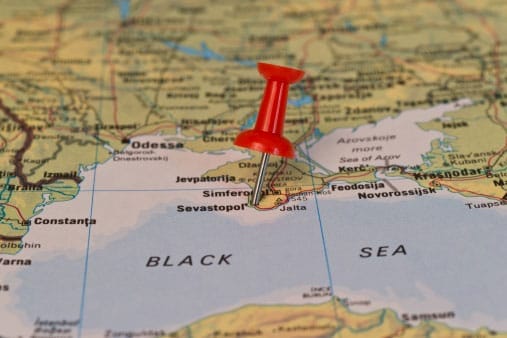The crisis in Crimea has riveted the world’s attention and has caused the United States, European Union, Canada and Russia to cross diplomatic swords. The situation is akin to that of propane gas filling a room and several sides involved playing with lighters nearby, but hoping the sparks generated as a result will not trigger an explosion.
There exists an absolutely clear diplomatic solution, which I think will be achieved in this situation, barring any potential military flare-up triggered by an incident that spins out of control. The U.S. has taken an approach of the stick over the carrot to resolve the crisis, or to at least to get the parties into a meaningful diplomatic discussion.
Sanctions are a viable political tool. They have proven effective in many situations (think Iran, Cuba, Libya, the Soviet Union).
Mild sanctions, like the sanctions announced by President Barack Obama last Thursday, March 6, are designed to force parties to the negotiating table. Yet even mild sanctions will trigger what Russia calls an asymmetrical response that will likely sting the imposing side. That response and the weakness of the current sanctions are likely to trigger even stronger economic and political sanctions by the U.S. and Canada, though note how EU has thus far carefully abstained from getting involved in this.

President Barack Obama ordered financial sanctions on March 6, 2014, against individuals and corporations purportedly involved in the Ukrainian crisis, including Russian business, government and military leaders.
The problem with imposing strong sanctions against Russia is that over the last two and half decades since the fall of the Soviet Union, there has been a tremendous fusion of economic, business, political, personal and cultural interests between Russia and the U.S., and certainly between Russia and the EU and Canada. Inevitably, the introduction of any meaningful sanctions will result in unintended collateral damage and will inflict pain on the businesses, individuals and cultural institutions of the country imposing the sanctions.
Let’s look at examples of collateral effects on the U.S. economy:
Russian asymmetrical responses will allow the Russian government to seize assets at random of companies and individuals operating in Russia. Not only does this threaten the economic well-being of U.S. companies and expatriates there, but it also has the potential to cripple direct foreign investment for years to come. Ditto for the American real estate sector, the franchising sector, financial markets and factories, as well as businesses purchased by Russian individuals in the U.S. This will result in the loss of business and tax revenues. Billions of dollars are at stake.
U.S. exporters, manufacturers, freight forwarders and shippers are at risk of losing hundreds of millions of dollars in revenue. Thousands of American jobs will be affected if trade restrictions are imposed by the State Department, or by the Russian authorities.
U.S. hospitality companies and the retail sector will be affected by the visa restrictions and will lose millions in revenues from Russian tourists.
Educational institutions and sports and entertainment arenas will be affected by the patriotic backlash, lost revenue and wasted opportunity for cross-cultural diplomacy should sanctions be introduced. Even in 1980, when the U.S. boycotted the Moscow Summer Olympics and it was simpler to contain the collateral damage due to the isolated Soviet regime, the effects on athletes—and the economic and political fallout—were substantial. Today, it would be an order of magnitude worse.
Critical issues where the U.S. and Russia cooperate—counterterrorism, containment of Iranian nuclear proliferation, removal of chemical weapons in Syria—will be affected to the detriment of both sides, and to the detriment of our allies.
Sanctions have a place in resolving geopolitical crises, but they should be the option of the next-to-last resort, imposed before military action is invoked. A credible diplomatic solution for the Crimean crisis is available and needs to be pursued in earnest; otherwise, introducing sanctions into the highly intertwined relationship between Russia and its Western counterparts risks causing more problems than it will solve.
























